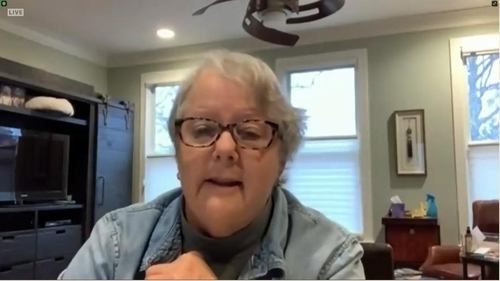IRA may lead to negative consequences for US in competition with China: US experts
By YonhapPublished : Dec. 16, 2022 - 09:44

WASHINGTON -- The US Inflation Reduction Act may lead to unintended but negative consequences for the United States in its increasingly intensifying competition with China unless modified, US experts argued Thursday.
One expert here also insisted that the new US law may undermine rules-based global trade orders, which the US has worked so many years to build and defend.
Citing her recent meeting with the head of a South Korean battery manufacturer, Tami Overby, former senior vice president of US Chamber of Commerce, noted the company was now thinking about "unwinding" its investments in Argentina and Indonesia to secure critical minerals for electric vehicle batteries designed to be sold in the US
"Who do you think is going to buy these mines," Overby quoted the South Korean businessman as saying, adding the IRA requires EV batteries to be made with minerals and components produced in the US or countries with which the US has a free trade agreement in order to be eligible for tax incentives offered under the new US law.
Overby insisted that if these mineral mines were abandoned by the South Korean battery manufacturer, they would likely be purchased or invested in by the Chinese, who currently "have the most money" and "are trying to walk down every critical mineral around the world they can."
"I really don't think this is the goal of the (US) administration. So again, more unintended consequences," she added.
The IRA, signed into law by President Joe Biden in August, offers government tax credits of up to US$7,500 to buyers of new EVs, but only those assembled in North America that also meet all other criteria, such as the origin of minerals used in EV batteries.
Tori Smith, director of international economic policy at the American Action Forum, a conservative issue advocacy group based in Washington, pointed out that the IRA is "blatantly in violation" of World Trade Organization regulations, as well as the Korea-US FTA.
"It's blatantly in violation of the underpinning of a key tenant of the WTO, which is national treatment, and it essentially means that imports cannot be treated differently than domestically produced goods. It also violates a core tenant of the US-Korea FTA or KORUS," she told the virtual meeting.
Seoul has already sent two official letters to the US government, expressing its concerns over the IRA that it says, if implemented as it is, will significantly undermine the competitiveness of South Korean carmakers and battery producers in the US
Smith argued South Korea may seek a legal solution if necessary, and potentially win.
"If we come to a situation where a resolution is not found that is satisfactory to, as Tami would put it, Korea Inc., then I think it would be completely justified and actually potentially quite successful for Korea to file a case under KORUS (FTA) and contest these rules because they are in blatant violations," she said.
Robert Hood, vice president of government affairs at Hyundai Motor Co., said the company may be forced to reconsider its investment in the US
The South Korean carmaker broke ground in October for the construction of its first EV dedicated plant in Georgia. The company, together with South Korean EV battery maker SK On Co., is also looking to build an EV battery plant in Georgia by 2025.
"And so as this continues to potentially hurt our growth, I think we will have no choice but to really reassess where we go," he said.
"We don't want to do that. The US is so important to us as a company," added Hood. "And again, it's our hope that there's some sort of a solution at the end of this process." (Yonhap)










![[Hello India] Hyundai Motor vows to boost 'clean mobility' in India](http://res.heraldm.com/phpwas/restmb_idxmake.php?idx=644&simg=/content/image/2024/04/25/20240425050672_0.jpg&u=)








